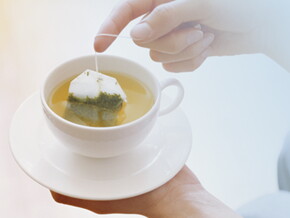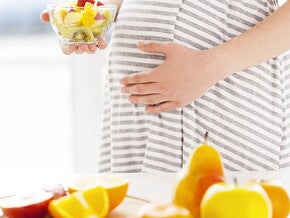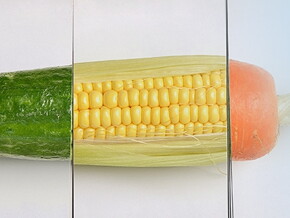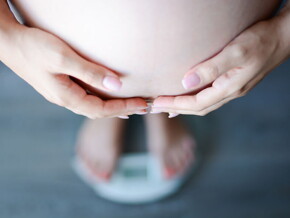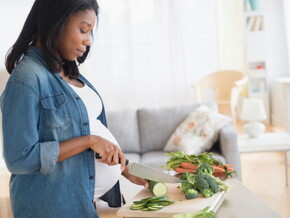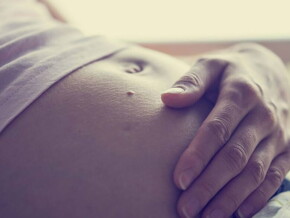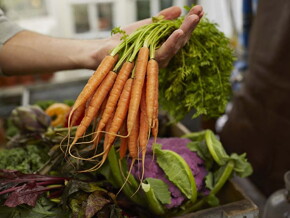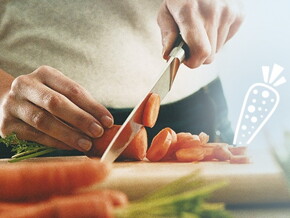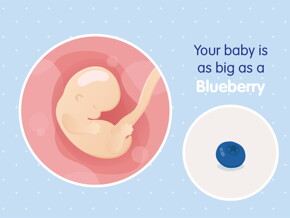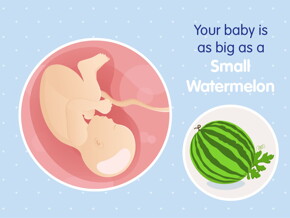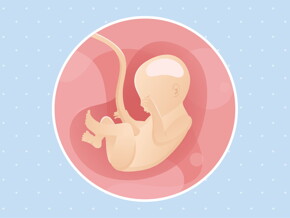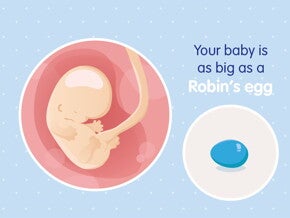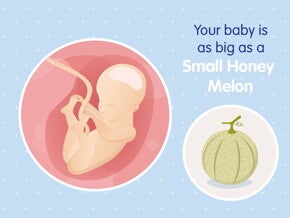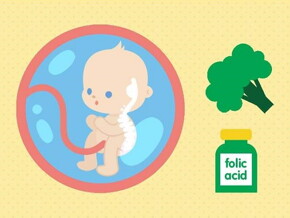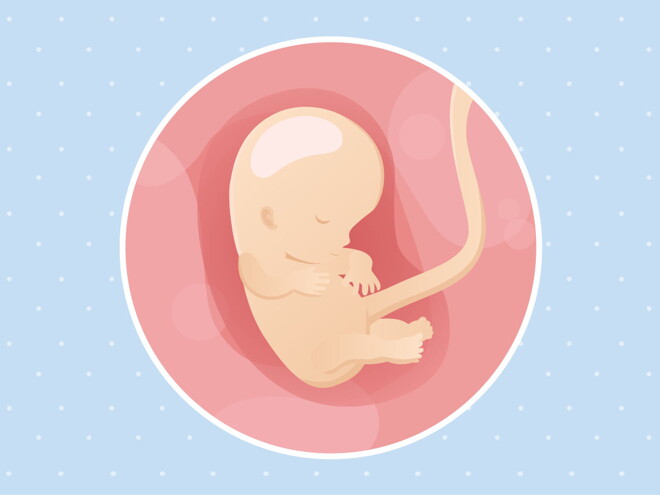
Baby development
Your baby is really starting to resemble a little human being. Their face finally looks like one, with everything in place. Their head is still very large, much bigger than the rest of their body, but they can turn it. Their body has lots of muscles and can wave their arms and legs, though not coordinated. In their abdomen, their over-sized liver is forming many of their red blood cells.
Your body
You may have been jumping for joy over your pregnancy half an hour ago and then suddenly seemed worried. Yes, the mood swings during the first trimester can be quite impressive. If you have been suffering from mood swings or feeling unwell, this will likely soon resolve. In the second trimester, which is just about to start, hormone levels become more balanced again. That’s when most moms experience a feeling of calmer well-being.
Nutrition
This week we are calling your attention to good, old-fashioned protein. Are you getting enough each day?
A building block of your baby’s body, protein helps to develop almost everything from muscles to collagen. During pregnancy, your protein needs increase from about 50g to 71g per day. To put that in context of what’s on your plate, a boiled egg has about 7g of protein, a 30g portion of cheese and a 240ml cup of milk each has 7-8g, and an 85g fillet of salmon contains 23g. So, one egg can give you about the same amount of protein as 30g of meat, fish, or cheese, or a glass of milk. Protein is essential for both you and your growing baby. Although almost no food of plant origin contains all of the essential amino acids except for soy, vegetarian diets can provide various vegetable-sourced proteins. Eating a variety of plant-based proteins at the same meal, such as combinations of grains, legumes, and nuts, can provide a mix of all the essential amino acids. If dairy and egg proteins are part of your diet, all of the essential amino acids can also be provided. Make sure you let your doctor know if you are following a vegetarian or vegan diet.
Tips
Can I eat fish while pregnant?
It is quite possible for pregnant women to eat fish as part of a balanced diet, as it is an excellent source of protein and other essential nutrients. Health Canada recommends that women continue to eat at least 150 g of cooked fish eat week during pregnancy. Some types of fish may contain contaminants such as methyl mercury. Health Canada recommends choosing fish types that have low levels of contaminants such as salmon, trout, herring, haddock, canned light tuna, and sole.
In general, fatty fish, such as salmon and sardines, are recommended for diets of women that are pregnant. These fish provide DHA (docosahexaenoic acid), an omega-3 fatty acid that helps support your baby’s brain and eye development. Getting enough DHA can be tricky, so if you’re unsure – or you’re not a fish fan – speak to your healthcare provider about a supplement containing DHA. If you are thinking about how your intake of fish might influence risk of allergy in your developing baby, know that current research indicates that healthy pregnant women can include foods such as milk, eggs, fish, nuts, or wheat in their diets with no increased risk of allergy for their children.
Reference
Health Canada. Prenatal Nutrition Guidelines for Health Professionals – Fish and Omega-3 Fatty Acids. Prenatal Nutrition Guidelines for Health Professionals - Fish and Omega-3 Fatty Acids - Canada.ca Accessed August 2021.
Institute of Medicine. 2005. Dietary Reference Intakes for Energy, Carbohydrate, Fiber, Fat, Fatty Acids, Cholesterol, Protein, and Amino Acids. Washington, DC: The National Academies Press. https://doi.org/10.17226/10490.





